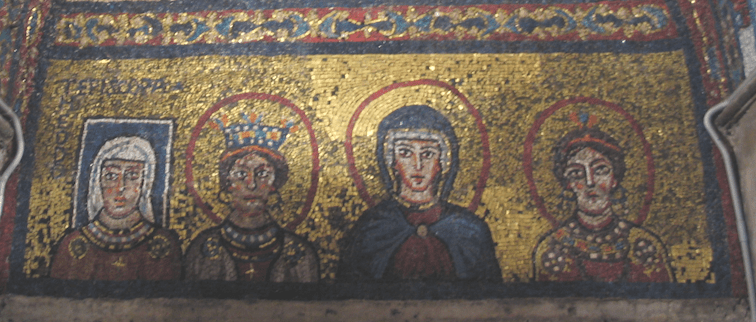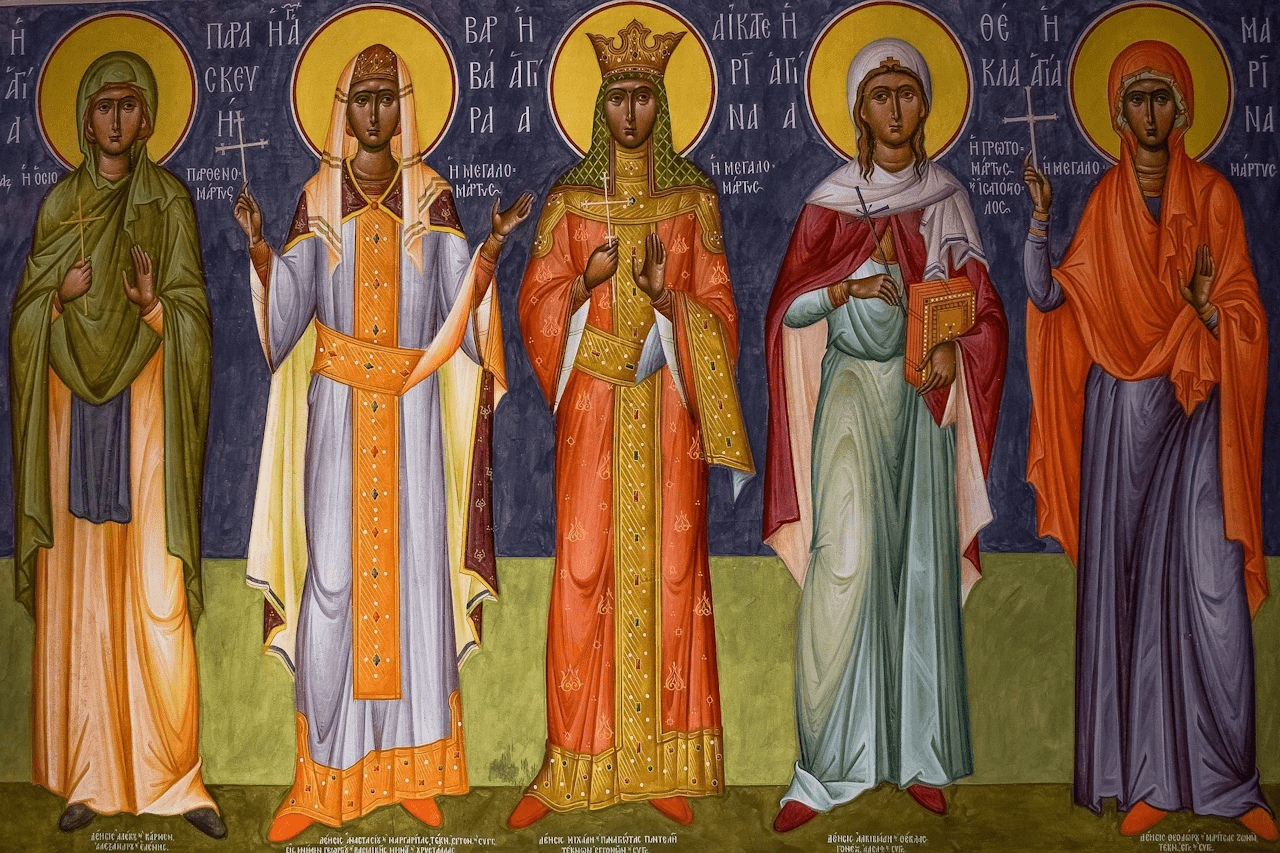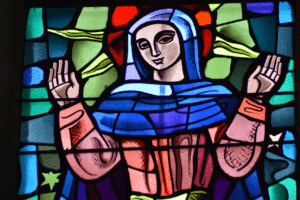Susan Roll is speaking to a conference in the Netherlands this week, and her regular Scripture reflection is not available. In its place, Susan has agreed to our publishing a paper she recently gave at a joint Zoom meeting of the Catholic Network for Women’s Equality (CNWE) and Concerned Lay Catholics (CLC) on March 3, 2024. This paper gives a very brief history of women’s participation in the early (and evolving) Christian community. Today, we present Part I. Part II will be presented next week.
Part I
The earliest Christian communities, even though they were embedded in very patriarchal cultures around the Mediterranean, were doing something very new, and that gave them a lot of flexibility. From the New Testament letters of Paul and others, we have names of prominent women dating from the 50’s and 60’s of the common era:
Phoebe the deacon in the letter to the Romans; Junia who is called an apostle; Lydia whose home was the meeting place for a house-church; Dorcas who cared for the poor; and Eunice and Lois, Timothy’s grandmother and mother.
The Gospels were written somewhat later and women’s ministries were already beginning to be filtered out in Luke. Nonetheless we have prominent women such as Mary of Magdala who appears prominently in the Gospels; Photina the Samaritan woman at the well who was the first missionary to proclaim Christ to her village; and women patrons who traveled with and supported Jesus’ ministry such as Joanna the wife of Chuza a servant of Herod, Susanna, and others.
We know of women’s ministries in the second to fourth centuries from visual evidence: the figure of Priscilla painted on the wall of her catacomb vested and presiding at a table.
We have a book, the “Acts of Thecla,” about a woman missionary who followed Paul and his companions on their journeys. Later, in the ninth century, a mosaic in the Basilica of St. Praxede in Rome of Episcopa Theodora, a woman bishop who was still living at the time.

We also know that women performed baptisms up to the fourth century until they were attacked by certain Church fathers. There were deacons and overseers (bishops) in the early Church, but the “presbyters” were elders. There were no men made priests by attending the Last Supper. Priests came much later.
From the Middle Ages onward, we know the names and works of women mystics: Hildegard of Bingen in the 11th century whose visions, music and healing wisdom were well respected; Gertrud of Helfta and Mechtild of Magdeburg, mystics in the same period, Marguerite Porete and her misunderstood visions. In the early modern period we know of Catherine of Siena who carried on an extensive correspondence although she was illiterate, Teresa of Avila the great reformer of monastic life, and many others. It was only in the 1970’s that such women could be given the title of Doctor of the Church – and that was just because mystical knowledge was only recently accepted by the Church as a form of pre-eminence. We have many women founders of religious orders.
So there were brilliant, respected, accomplished women of faith, and yet, a powerful culture of contempt for women developed already in the early Church and never fully let go. We have belittling contemptuous writings against women from the last centuries of the Church before the fall of the Roman Empire, to repress women’s ministries. We have hideous screeds against women from bishops in the Middle Ages to force priests to reject their wives just when priestly celibacy became the law. Thomas Aquinas believed that a female was conceived because something went wrong in the process, perhaps a moist wind from the South; and that women could never be priests because they were inferior by nature.
Photo Credit: “Mosaic in San Zeno chapel of Santa Prassede” Image © Sixtus (Wikipedia Contributor), 2006, via Wikipedia. Some Rights Reserved.
License: CC BY-SA 3.0 DEED Attribution-ShareAlike 3.0 Unported
Used in accordance with the license and copyright law.
Susan Roll retired from the Faculty of Theology at Saint Paul University, Ottawa, in 2018, where she served as Director of the Sophia Research Centre. Her research and publications are centred in the fields of liturgy, sacraments, and feminist theology. She holds a Ph.D. from the Catholic University of Leuven (Louvain), Belgium, and has been involved with international academic societies in liturgy and theology, as well as university chaplaincy, Indigenous ministry and church reform projects.




What a wonderful reflection for International Women’s Day. Your well-researched article offers salient info as to the origins of ecclesial and cultural “systemic blindness” regarding women’s full participation in church and society. Many thanks.